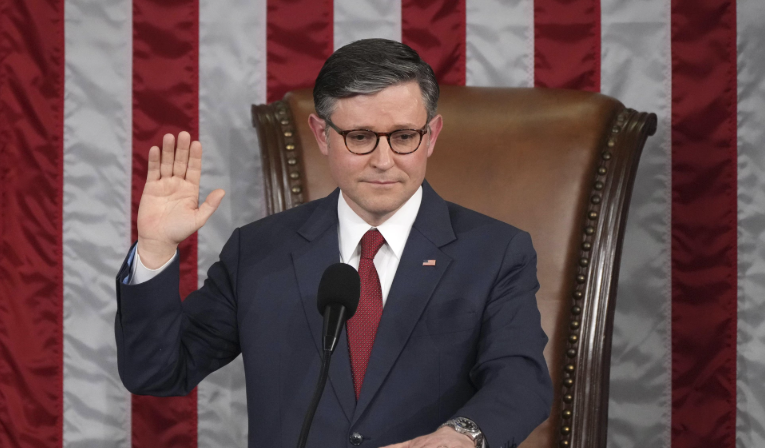House Speaker Mike Johnson directed that flags at the U.S. Capitol be raised to full height for Inauguration Day, temporarily suspending the 30-day flag-lowering order following the death of former President Jimmy Carter. This decision means that President-elect Donald Trump will take the oath of office for his second term under full-staff flags, contrary to the expectations set by the flag-lowering order, which had drawn criticism from Trump.
This action aligns with similar decisions made by several Republican governors. North Dakota Gov. Kelly Armstrong, Florida Gov. Ron DeSantis, Alabama Gov. Kay Ivey, Tennessee Gov. Bill Lee, and Iowa Gov. Kim Reynolds all announced on Tuesday that flags in their states would be raised on Inauguration Day, though they will be lowered again on January 21 in honor of Carter. Texas Gov. Greg Abbott issued a comparable notice earlier in the week.
The flag-lowering period, initiated by President Joe Biden’s executive order, started after Carter’s death and affects flags at federal buildings, military installations, U.S. embassies, and other government facilities worldwide. The order is set to last until January 28, which includes Trump’s inauguration and the first week of his second term. State governors followed suit by issuing similar orders within their states.
Trump had expressed frustration over the prospect of taking office with flags at half-staff, calling the situation “unfortunate.” He criticized the lowered flags on social media, stating that no American would be happy with the decision. Some of his supporters have voiced similar concerns.
At Trump’s Mar-a-Lago estate in Florida, a U.S. flag was observed flying at full height shortly after Carter’s burial, despite an order from DeSantis to lower flags. As of Tuesday, DeSantis had not altered his stance on the flag order.
The U.S. Flag Code specifies that flags should be lowered to half-staff for 30 days after the death of a president, and this practice was extended to honor Carter.


